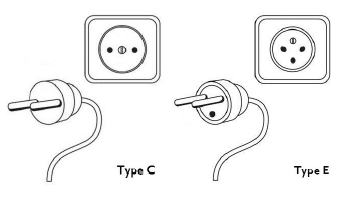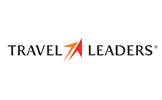MOROCCO

Fun Facts From Globus Tours
- Morocco gained independence from France in 1956.
- The shrine of Sidi Yahya, situated on the Oujda city of Morocco, is said to be the toumb of “John the Baptist”.
With Morocco’s strategic position guarding the entrance to the Mediterranean, “the pillars of Hercules” attracted many ancient civilizations, including the Phoenicians, Romans, and Byzantines before the first Arabian dynasty was established in the lands of the original Berber inhabitants. Later colonized by France and Spain, it achieved independence in 1956. This diverse, historical legacy, as well as its geographic location, has given the country a rich cultural heritage. It is situated on the northern edge of Africa, just a short ferry ride across the Straits of Gibraltar to Europe, and bordered by the Atlantic Ocean, the Mediterranean Sea, and neighboring Northern Africa countries. Fascinating Morocco is a melting pot of Arabian, Berber, and African cultures.
Today, its 36 million hospitable people live in the magnificent imperial cities of Fez, Meknes, Marrakesh, and Rabat, in Casablanca or in hundreds of rural villages, (some fortified, others set in an oasis), and there are still a few nomadic tribes. It is a mainly agricultural society with farmers working the land in the traditional way. Morocco is also a country of exceptional geographical diversity with fertile green valleys and plains separated from the Sahara Desert by the magnificent Atlas Mountains…a photographer’s paradise.
The market souks proudly display pyramids of spices and fresh produce, ingredients of the varied, healthy, and easily digestible Moroccan cuisine, which is rarely very spicy; it is often accompanied with fresh mint tea and, on special occasions, with dance and music. In the souks of the old medina, some of which have barely changed since medieval times, enjoy sharpening up your bargaining skills to seek out some beautiful souvenirs.
VISAS, PASSPORTS, AND OTHER ENTRY REQUIREMENTS
Visas to Morocco are not required for US citizens. If you hold a passport from another country, please check with your local consulate about requirements for travel to Morocco. All passengers traveling internationally are required to have a passport. Please carry proper identification (your passport) on you and do not leave it in your suitcase or hotel room.
It is advisable to carry your passport with you at all times.
COUNTRY CODES
The country code for Morocco is 212. When calling to Morocco from overseas, dial your international access code (011 from the US/Canada), followed by the country code, area code, and phone number. Phone numbers in Morocco are nine digits in length. Dialing from the US/Canada: 011 212+##+### ####.
CURRENCY
The official currency of Morocco is the Moroccan Dirham. U.S. Dollars may be accepted in small denominations only (any change will be given in the local currency).
Bank hours: 8:30 a.m. to 11 a.m. and 2:30 p.m. to 5 p.m. in winter, and 8 a.m. to 3:30 p.m. in summer, Monday through Friday.
1 MOROCCAN DIRHAM = 100 CENTIMES
- Banknote denominations: Dirham – 20, 25, 50, 100, 20
- Coin denominations: Centimes – 5, 10, 20, 50; Dirham – 0.50, 1, 2, 5, 10
For the most current exchange rates, please go to our website at Globusjourneys.com/Currency.
It is illegal to bring more than 1,000 Dirham out of the country upon departure. Therefore, only exchange a small amount of money while in Morocco, so you do not have excess upon departure. Keep your receipt when buying Dirhams as you’ll need it to cash back any remaining Dirhams before you leave. ATMs can be found near hotels but check that they accept foreign credit cards (Plus or Cirrus) before inserting your card.
Credit cards should be used with caution. If you want to use your credit card, we recommend you keep it in sight at all times and request receipts.
Bargaining is common in Morocco. Though there is no exact rule for how much to offer to initiate bargaining, 50% less than the amount stated is a good place to start.
BUDGETING AND SHOPPING
The following budget guidelines are just approximate values or starting values for meals and are per person. Actual prices will vary widely by restaurant and city within a country but below are some averages as provided by our experienced personnel.
- The approximate cost of a soft drink/mineral water/coffee is 5 MAD.
- An average lunch consisting of a salad or sandwich and a soda or water starts at approximately 30-60 MAD.
- Dinner at a mid-range restaurant with dessert and a non-alcoholic beverage starts at approximately 80-180 MAD.
Shopping specialties: carpets, leatherwork, brass plate, blue pottery.
TIPPING
We recommend a tip of 10% to wait staff in restaurants. At informal cafes, 1-2 MAD is usually an acceptable tip.
For taxis, round the fare to the nearest whole Dirham.
Restroom attendants expect a small gratuity so we recommend you carry small denomination coins with you.
Tip hotel staff 8-17 MAD for room service.
ELECTRICITY AND ELECTRICAL OUTLETS
Outlets
Voltage for outlets is 220V. North American voltage is generally 110V. Therefore, you will need a converter for your travels. Adapters will be necessary to adapt your plug into the outlet, but these may not convert the voltage, so both devices are necessary. Morocco uses a round 2-prong plug that looks like:

TEMPERATURES
To help you plan, below are average low and high temperatures for Morocco.

To convert to Celsius, subtract 30, then divide by 2. While not exact, this simple formula will give a close estimation.
FOOD SPECIALTIES
Lamb and chicken, tagine (stews), couscous (semolina cooked with spices, vegetables, nuts, and raisins), harira (a thick meat-based soup with chickpeas), pastilla (filo pastry pie with meat, vegetable and nut filling), savory dishes often enhanced with fresh or preserved fruit (apricots, dates, figs, and lemons), and mint tea.
Avoid iced drinks and eating raw and unwrapped street fare. We recommend drinking bottled mineral water and not tap water.
FEW WORDS OF THE LOCAL LANGUAGE
Arabic: (pronounced as):

Good morning: Sabah el khair, Good evening: Masaa el khair, Thank you: Shokrun, Please: Men Fadluck, Do you speak English?: Be’tetkalem englizi?, I don’t understand: Ana mosh fahem, Please write it down: Ekteb hali men fadlak, How much is this?: Bikam dah?, 1: Wahed, 2: Ethnein, 3: Thalàtha, 4: Arba’a, 5: Hamsà, 6: Seta, 7: Seba’a, 8: Thamània, 9: Tesa’a, 10: Ash’ra, 20: Eshreen, 30: Thalatheen, 40: Arbae’en, 50: Hamseen, 60: Seteen, 70: Sabèen, 80; Thamanen, 90: Tesa’een, 100: May’a, 150: May’a u hamseen, 200: Metein, Where is…?: Fain…?, Telephone: Telephone, Bathroom: Hammam, Bottled water: Maya maadaneya, Tea: Shaay, Coffee: Ahwa.
U.S. DEPARTMENT OF STATE COUNTRY INFORMATION
Additional country-specific information for US citizens can be found on the US Government’s website www.travel.state.gov. Here, you can find the most up-to-date information about destination descriptions, passports/visas, safety and security, transportation, travel local laws, alerts/warnings, vaccinations, and more. For citizens of other nations, we recommend you consult your local consulate for travel information, regulations, and requirements.











